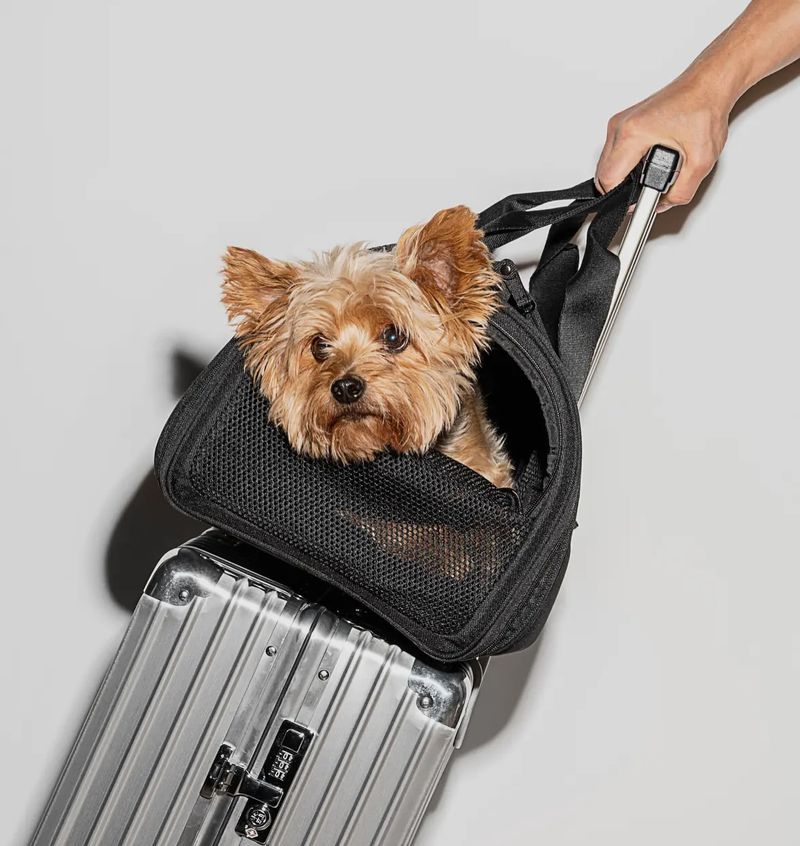Is A Small Dog Right For You? 12 Honest Pros And Cons

Thinking of adding a tiny tail-wagger to your life? Small dogs might be cute as a button, but they come with their own hilarious highs and occasional hiccups.
Let’s dive into the wild (and adorable) world of little pups and see if they’re your kind of paw-some!
1. Pro: Long Lifespan

One of the sweetest perks of small dogs?
They usually stick around longer than their bigger buddies—hello, extra years of tail wags and snuggles! Many small breeds live well into their teens, becoming lifelong little companions.
They’re there for birthdays, graduations, and every lazy Sunday in between. But with all those years comes a serious long-term commitment.
You’ll need to keep up with vet visits, daily care, and all the cuddles they crave. It’s a big promise—but one that brings endless joy if you’re ready for the ride.
2. Con: Fragile Build

Small dogs may be mighty in spirit, but their little bodies are more delicate than they look. A tumble off the couch or rough play can lead to unexpected ouchies.
That’s why gentle handling is a must—especially around kiddos who might get a bit too enthusiastic. Pet stairs, ramps, and soft landings can go a long way in keeping them safe.
Their dainty frames can also mean more vet visits over time, so budgeting for health care is key. These tiny treasures need big love—and a little extra caution!
3. Pro: Easy To Manage

Small dogs are like portable bundles of joy—tiny enough to scoop up and take just about anywhere!
Their fun-sized frames make them a dream for apartment living or cozy homes.
They’re pros at fitting into totes, laps, and even your daily routine. Hopping on public transport or sipping lattes at dog-friendly cafés? Way easier with a pint-sized pooch.
Bonus: they eat less, need fewer supplies, and are gentler on your wallet. But don’t be fooled by their size—they’ve still got big personalities that need training and social time.
Just because they’re small doesn’t mean they’re low-maintenance. With the right care, these little legends are pure magic in a tiny package.
4. Con: High Energy Levels

Don’t let their size fool you—small dogs are often buzzing with energy like tiny, furry firecrackers! They need regular walks, play sessions, and fun brain games to stay happy.
Skip the exercise, and you might come home to chewed-up shoes or a bark-a-palooza. These little dynamos need attention and engagement every day.
Toys, puzzles, and even agility courses can work wonders to burn off steam. If your schedule’s packed, think twice—these pups need quality time to thrive.
5. Pro: Adaptable To Small Spaces

City life? No problem—small dogs are urban pros! Their petite size makes apartment living a breeze, no backyard required.
Give them a comfy bed or a snug little nook, and they’re happy campers. They’re masters at making the most of small spaces.
But don’t be fooled—they still need adventures! Walks, park visits, and fun indoor games help keep their tails wagging and minds sharp.
6. Con: Separation Anxiety

Small dogs love hard—and sometimes a little too much! They can get super stressed when their favorite human walks out the door.
Cue the whining, chewing, or surprise indoor digging projects. Easing their anxiety takes time, training, and maybe a cozy toy or two.
If you’re gone a lot, doggy daycare or a sitter might be your pup’s new BFF. Helping them feel safe solo is key to keeping your home—and their hearts—intact.
7. Pro: Low Maintenance Grooming

Good news—many small dogs are low-key when it comes to grooming! Short-haired cuties often need just a quick brush and the occasional bath.
Less fur means less mess, which is a dream if you’re always on the go. Even long-haired breeds stay pretty manageable with a trim here and there.
Starting a grooming routine early helps your pup stay chill during spa time. Plus, regular care keeps them looking fabulous and feeling fresh!
8. Con: Costly Accessories

Tiny dog, big fashion budget! Small pups are often the stars of stylish collars, posh outfits, and designer carriers—and it adds up fast.
Brands know how to woo dog parents who love to spoil their furry fashionistas. Some breeds even need custom gear like special harnesses or mini beds.
If you’re on a budget, just pick your splurges wisely—because a little luxury can go a long way in keeping your pup comfy and chic!
9. Pro: Easy Traveling Companions

Jet-setting with a small dog? So much easier than lugging around a big pup! They fit snugly in carriers and can tag along by plane, train, or car like little travel pros.
Hotels and pet-friendly spots usually welcome them with open arms (and sometimes treats). Just don’t forget their travel docs and vaccines!
With a bit of training, they’ll be exploring new places with tail wags, not tantrums. If you’ve got wanderlust, a small dog might just be your ideal adventure buddy.
10. Con: Tiny Tornadoes of Mischief

Small dogs may look innocent, but they can unleash a whirlwind of mischief at home. Their small size often leads people to underestimate their ability to cause chaos.
From chewing on shoes to shredding throw pillows, these tiny tornadoes can leave quite a trail of destruction.
Owners must remain vigilant and provide plenty of toys and distractions to keep their little companions entertained.
Despite their size, small dogs have big personalities, and when boredom strikes, their mischievous side shows. It’s crucial to offer them enough mental and physical stimulation to curb their playful antics.
11. Pro: Pocket-Sized Adventure Buddy

Small dogs make fantastic pocket-sized adventurers.
Their compact size allows them to tag along on almost any excursion, fitting comfortably in backpacks or carriers. Whether you’re hiking a mountain or exploring a new city, these little pups are up for the challenge.
Their boundless energy and curiosity often match that of their human companions, making them the perfect partners for spontaneous outings.
With a small dog by your side, every walk feels like an expedition, and every trip becomes an opportunity to explore new terrains together.
12. Con 3: Potential For Noise

Small dogs sure have a lot to say—sometimes to strangers, sometimes to squirrels, and sometimes to absolutely nothing at all! Their bark can be way bigger than their bite.
It’s often their way of playing watchdog or puffing themselves up like little lionhearts. While training helps, you’ll need plenty of patience (and maybe earplugs).
Some breeds are just naturally chatty, so it’s worth doing your homework. Knowing what to expect keeps both your ears and your sanity intact!






